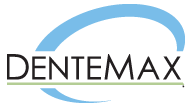As the population ages, dental professionals are increasingly called upon to address the unique oral health needs of older adults. Beyond routine cleanings and fillings, geriatric dentistry requires a comprehensive approach that considers aging, physical health and cognitive function. Numerous oral conditions are more prevalent amongst seniors and can significantly impact their quality of life. Furthermore, impairments may complicate daily oral hygiene routines, requiring tailored strategies and caregiver involvement.
This blog aims to equip dental professionals with insights and practical approaches to enhance the oral health and overall well-being of elderly patients, emphasizing the importance of preventive care, personalized treatment plans and collaborative efforts with caregivers.
Medical conditions & medications
As people age, they tend to develop more serious medical conditions that need to be considered during dental care. It's crucial to have a deep understanding of a patient's medical history, especially if they have conditions such as heart problems, kidney disease, liver disease or are on blood thinners. Even some oral diseases are more prevalent in older adults, such as Periodontal or gum disease. A high percentage of patients who suffer from these conditions fall among those who are 65 and older.
When it comes to treating older patients with oral medications, less-traditional routes may have to be taken. First, you must be aware of and consider the medications your patient may already be routinely taking. Then, verify that any potential interactions between dental medications and the patient's existing medication will not cause any harm or further issues. It is possible that older adults may need lower doses of certain medications due to changes in how their body metabolizes drugs. To add another layer, some medications your patient may already be on for other ailments could be negatively impacting their oral health. This is something to investigate if your elderly patient is experiencing new mouth pain or discomfort.
Physical & cognitive limitations
Poor oral health in elderly individuals is significantly linked to both physical and cognitive decline. Studies have shown that tooth loss, periodontal disease, and a lack of oral care can increase the risk of cognitive impairments, such as dementia. Oppositely, cognitive decline can also lead to neglect of oral hygiene, which increases the risk of oral health problems.
Studies display that when older individuals experience tooth loss and do not properly care for it, future cognitive impairments or dementia are at risk. To add, poor oral hygiene can lead to increased bacteria and inflammation in the mouth, potentially exposing the brain to harmful bacteria. It is crucial to encourage caregivers of older individuals to be aware of the importance of oral health and aid with dental care to prevent these cognitive risks.
Additionally, studies have shown that poor oral health significantly predicts future physical frailty and disability. Pain and difficulty chewing can make it challenging for older individuals to maintain a balanced diet, further contributing to physical weakness.
Tailoring treatment plans
A tailored approach, often involving specialized clinics, community programs or adjustments to standard care, can save the quality of life for some elderly patients. Each patient's needs are unique, so care teams should work hard at an individualized treatment plan that considers their specific medical conditions and the severity of their dental issues.
Tailored strategies can help seniors manage chronic conditions, prevent health crises, and improve overall health outcomes. This could make a huge impact on their ability to participate in daily activities, maintain their routines, increasing their independence, lowering their frequency of hospital visits and the level of peace of mind for them and those around them. You can start by taking an in-depth health assessment, identifying all individuals responsible for helping in their care, schedule daily health tasks, building of an emergency plan and developing beneficial and realistic goals.
Extra-mile considerations
As a dental professional, it is important to make sure you are doing your part. Going the extra-mile in certain areas of your practice could make a dental visit that much easier for some elderly patients.
Put some thought into your dental office’s level of accessibility and ease. Does your practice already include these?
- Designated handicap parking spots
- Auxiliary aids and services
- Lowered reception desks for wheelchair access
- Senior hours for appointments
- Discounted senior rates
- Supportive reception furniture (armrests, higher chairs etc.)
- Grab bars in restrooms
- Ramp or elevator options by all stairs
- Take-home care packages
It is important to ensure that your staff has been trained on ADA compliance and knows how to properly care for patients with special requirements. Taking these simple things into account can make a world’s of a difference for some!
The bottom line: Geriatric dentistry addresses the unique oral health challenges faced by older adults, including complex medical histories, medication side effects and cognitive or physical limitations. By implementing personalized treatment plans and collaborating with caregivers, dental professionals can significantly enhance the quality of life and overall well-being of senior patients.

